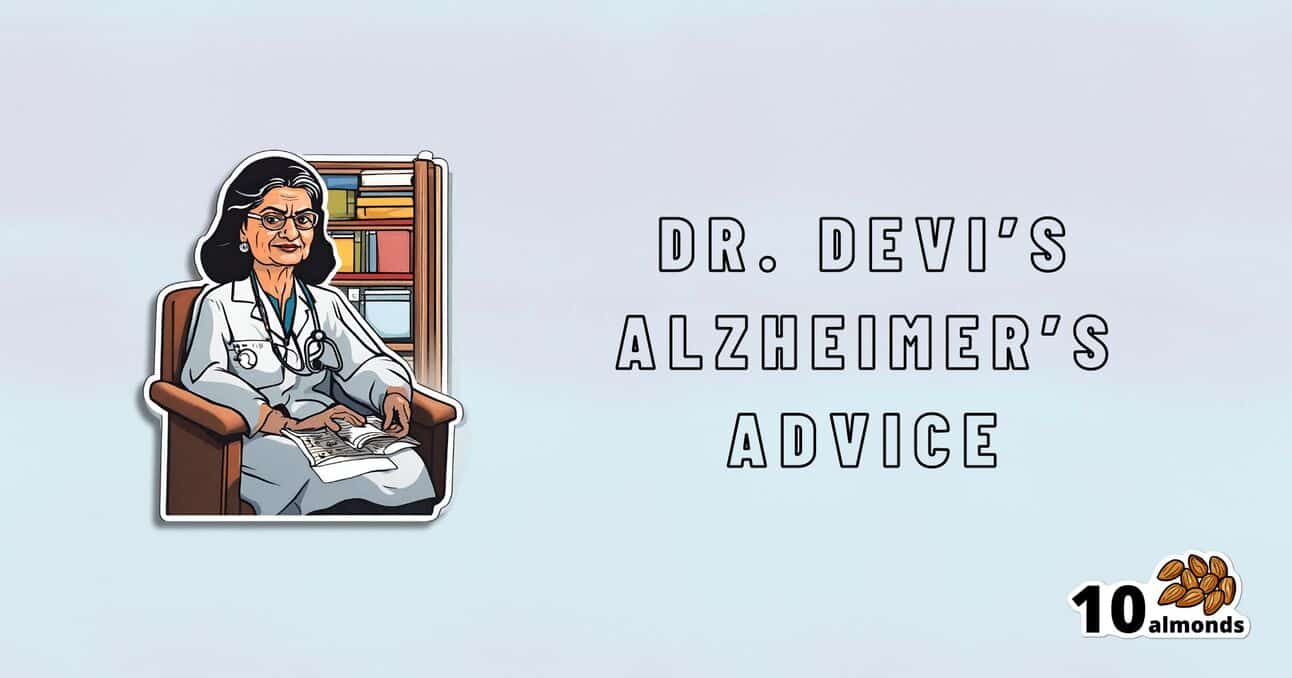Alzheimer’s: The Bad News And The Good
Meet Dr. Gayatri Devi: a neurological virtuoso on a mission to demystify Alzheimer’s, champion brain health, and challenge the stigmas of dementia.

Dr. Devi’s Spectrum of Hope

This is Dr. Gayatri Devi. She’s a neurologist, board-certified in neurology, pain medicine, psychiatry, brain injury medicine, and behavioral neurology.
She’s also a Clinical Professor of Neurology, and Director of Long Island Alzheimer’s Disease Center, Fellow of the American Academy of Neurology, and we could continue all day with her qualifications, awards and achievements but then we’d run out of space. Suffice it to say, she knows her stuff.
Especially when it comes to the optimal treatment of stroke, cognitive loss, and pain.
In her own words:
❝Helping folks live their best lives—by diagnosing and managing complex neurologic disorders—that’s my job. Few things are more fulfilling! For nearly thirty years, my focus has been on brain health, concussions, Alzheimer’s and other dementias, menopause related memory loss, and pain.❞
Alzheimer’s is more common than you might think
According to Dr. Devi,
❝97% of patients with mild Alzheimer’s disease don’t even get diagnosed in their internist offices, and half of patients with moderate Alzheimer’s don’t get diagnosed.
What that means is that the percentage of people that we think about when we think about Alzheimer’s—the people in the nursing home—that’s a very, very small fraction of the entirety of the people who have the condition❞
As for what she would consider the real figures, she puts it nearer 1 in 10 adults aged 65 and older.
Source: Neurologist dispels myths about Alzheimer’s disease
Her most critical advice? Reallocate your worry.
A lot of people understandably worry about a genetic predisposition to Alzheimer’s, especially if an older relative died that way.
See also: Alzheimer’s, Genes, & You
However, Dr. Devi points out that under 5% of Alzheimer’s cases are from genetics, and the majority of Alzheimer’s cases can be prevented be lifestyle interventions.
See also: Reduce Your Alzheimer’s Risk
Lastly, she wants us to skip the stigma
Outside of her clinical practice and academic work, this is one of the biggest things she works on, reducing the stigma attached to Alzheimer’s both publicly and professionally:
Alzheimer’s Disease in Physicians: Assessing Professional Competence and Tempering Stigma
Want more from Dr. Devi?
You might enjoy this interview:
Click Here If The Embedded Video Doesn’t Load Automatically!
And here’s her book:
Enjoy!
Share This Post
Learn To Grow
Sign up for weekly gardening tips, product reviews and discounts.




